What is the Average Time to get Pregnant by Age?

Quick Summary
- The average time to get pregnant by age varies depending on the level of fertility and diverse lifestyle choices.
- It's hard to answer how long it takes to get pregnant unless the insights of a female body are known.
- Planning a baby is a concrete decision that depends on various aspects such as physical, emotional and financial stability.
The average time to get pregnant by age varies depending on the level of fertility and diverse lifestyle choices. Some couples, precisely women, conceive in just a few months, whereas the others can take up to a year or more and still cannot get a positive outcome.
It's hard to answer how long it takes to get pregnant unless the insights of a female body are known. This is because women experience changes throughout their life that are linked to their reproductive health and increasing age.
Also, planning a baby is a concrete decision that depends on various aspects such as physical, emotional and financial stability. Though an individual considers such things, it's equally important to think of reproductive age.
In this write-up, we shall talk more about the relation of pregnancy with age and why age should be deemed as one of the crucial elements for getting pregnant.
Factors affecting the average time to get pregnant by age
Age is one of the most crucial factors that affects the average time a woman can take for conceiving. Besides this, there are other aspects too that should be considered while planning a pregnancy at any age. Given below are some of them:
Egg quality
- As women age, the quality and quantity of their eggs naturally decline. Egg quality refers to the ability of an egg to be fertilised and develop into a healthy embryo. Older eggs are more likely to have genetic abnormalities, which can lead to failed fertilisation, miscarriage, or birth defects.
- Women are born with a finite number of eggs, and as they age, the number of eggs decreases, and the remaining eggs may have a higher likelihood of being abnormal. The decline in egg quality and quantity typically begins in a woman's late 20s or early 30s, with a sharper decline after the age of 35.
- Therefore, age is an important factor to consider when it comes to a woman's fertility and the likelihood of achieving a successful pregnancy.
Habits like smoking and alcohol
- Smoking has been shown to reduce the number of eggs a woman has, as well as their quality, which can make it more difficult for a woman to conceive. Smoking has also been linked to an increased risk of miscarriage, ectopic pregnancy, and preterm birth.
- Alcohol consumption can also negatively affect fertility in older women. Heavy drinking has been linked to menstrual irregularities and can lead to a higher risk of infertility.
- In addition, alcohol consumption during pregnancy can have severe consequences for the developing foetus, including foetal alcohol syndrome.
Medical conditions
- Medical issues such as PCOS, under reactive or overactive thyroid conditions, fibroids in the endometrium lining, pelvic inflammatory disease, STDs, cervical cancer and so on affects the average time to get pregnant by age.
- As women age, they become more prone to these medical conditions that can negatively impact their ability to conceive and carry a healthy pregnancy.
Overall health
- Health issues such as overweight, underweight, excessive stress level, etc can lead to irregularity in the ovulation(15). These conditions can fluctuate the hormonal levels that eventually contribute to a disturbed ovulation cycle along with reduced sex drives.
Sexual activity
- While sexual activity itself does not directly affect fertility in older women, optimising the timing and frequency of intercourse during ovulation and addressing any issues related to vaginal dryness or discomfort can improve the chances of conception.
- Practising safe sex and getting tested regularly for STIs can also help preserve fertility.


What is the average time to get pregnant by age?
There is no precise answer to how long it takes to get pregnant as every woman's body works differently depending upon numerous factors such as age, genetics, health status, etc. Also, there is no defined or right age to conceive unless a woman is menstruating. However, the experience of planning a baby in the early years is different than in the latter.
Keep reading to uncover what pregnancy looks like in different age windows of the fertile years of life.
Conception in the 20s
- This duration suggests the average time to get pregnant by age between 20 to 29 years. The 20s are known to be a good time to plan the baby. During this phase, the chances of conception are high as the ovaries release eggs of good quality which are readily available to mate with the sperm.
- Also, in most women of this age, the menstrual cycles are more regular, which helps them track the ovulation date better to plan the days of intercourse accordingly. Further, the complications or risks associated with pregnancy are lower in the early 20s.
- When the question is how long it will take to get pregnant during the 20s, the answer is always on the affirmative side, as shown by the studies. That is, the infertility rate for married women from 20-29 years of age was found to be as low as 7-9%.
Conception in the 30s
- The average time to get pregnant by the age of about 30 years can increase. This is because fertility begins to decline at this stage in life. Around 32 years of age, the chances of conception begin to decrease, and they can reduce sharply once a woman is above 35.
- As per a study, infertility ranges between 15-22 per cent in this age window.
- The average time of a 35-year-old to get pregnant by age can be more as compared to the 30-year-old as the egg reserves at this stage are depleted, i.e. left to just 2.5% out of the initial count.
- The decline in fertility after 35 years is due to the rising insufficiency of the woman's system that releases older and less efficient eggs because all the fertile and efficient eggs are released during the 20s.
- These eggs have higher chances of being genetically abnormal, resulting in complications during pregnancy which can be inclusive of miscarriages too.
- Also, there are also chances of babies suffering from medical conditions such as Down syndrome, stillbirth and other genetic anomalies. Women above 35 years of age are highly likely to suffer from health issues such as endometriosis and fibroids, which can negatively influence the chances of conception.
- Getting pregnant in the late 30s can make a woman encounter bad health with complications such as preeclampsia, diabetes, etc.
Conception in the 40s
- For women thinking of how long does it take to conceive in their 40s, they must know the fact that their chances of getting pregnant are as low as 5% in each menstrual cycle.
- There is a severe decline in fertility here as this age window is a premenopausal phase of life, i.e. a woman will soon have menopause, where the ovaries do not have eggs to release each month. By 45, many women experience perimenopause symptoms, making it difficult to conceive naturally.
- The average time to get pregnant by age above 40 increases even more, and it's likely for a woman at this stage to suffer pregnancy complications similar to the ones in her late 30s. However, the only difference is the severity and probability of conception intricacies are higher at this age.
- Low birth weight, Down Syndrome, ectopic pregnancy, miscarriages, high blood pressure, gestational diabetes, etc., are the more likely problems a woman can experience while trying to get pregnant during her 40s.
- It has been found that an Indian woman can get menopause at an age as low as 46.6 years. Once menopause is reached, it's almost impossible for women to get pregnant naturally. Thus, the chances of conception in the late 40s are the least.
- Every couple has the right to choose when to plan a child. However, knowing the advantages and disadvantages of conceiving early or late in life is essential before deciding on parenthood. Keep reading to know them.
Benefits and drawbacks of early conception
The average time to get pregnant by age below 30 years is less, i.e. possessing a higher likelihood of getting pregnant. Besides this, there is more to know about the boons and limitations early conception offers.
Benefits
- A good quantity and quality of eggs exist in the initial years of menstruation. Hence a woman can give birth to a healthy child with the least or no complications.
- When asked how many months it takes to get pregnant at an early age, the answer is a maximum of 3 months of regular intercourse. Also, there is hardly any medical help required for young women for natural conception.
Drawback
- There have been incidents reported of women of very young age not physically fit enough to carry a child.
- It has been found that pregnant women below 20 years of age were at a high risk of death and other complications such as prolonged labour, continual bleeding while giving birth, haemorrhage, toxaemia, severe anaemia, and so on.
- Having a child at a young age can affect the individual's socioeconomic status. Most women or couples are not financially or emotionally strong enough to attain parenthood. As a result, it can lead to the deterioration of the child's physical and mental health.
Benefits and Drawbacks of late conception
Bearing a child at an elder stage of life in India is primarily due to a medical condition and rarely by choice. Though there are many disadvantages of late conception, there is also another side to this coin that features its benefits too. Keep reading to know the boons and the associated risks.
Benefits
- As per a recent study, it has been found that older women tend to be more educated and aware of raising their children well. Also, older mothers have a more positive mindset about pregnancy and childbirth than younger, immature women.
- Pregnancy later in life can bring in more financial and emotional stability. Older women or couples get time to build assets or educational backgrounds before conceiving. By the time they have a child, they are at a better stage to suffice adequate nutrition and other required elements for their newborn.
- Also, as per a recent study, having a child at the age of 40 reduces cognitive decline and increases lifespan.
Drawbacks
- The answer to how many months does it take to get pregnant at an older age can be a little harsh as fertility declines with age.
- Older women, especially those above 40 years of age, who are unable to conceive for about six months, can suffer from fertility issues. Also, in most cases, it is unlikely to get pregnant naturally.
- Most women above 40 years are required to seek medical help to monitor their pregnancy throughout the gestation phase until the child is born. This is because such women have higher chances of encountering complications that can be fatal for the child as well as for the mother.
How to increase the chances of conception at any age?
There are some beneficial ways a woman must know to increase her chances of getting pregnant at any age. However, at the same time it's important to know that nothing could help if she has already attained menopause.
Right nutrition
- A balanced diet with proper quantities of proteins, carbohydrates, fats and other essential nutrients is important to keep the hormonal levels in the expected range.
- Moreover the right nutrition affects the regularity of the menstrual cycle and the quality of eggs. Also, it's important to consume folic acid every day along with multivitamins (if required or prescribed by the doctor) to have a healthy pregnancy.
Proper sleep
- Increased stress level or inadequate sleep results in hormonal imbalance which is linked to infertility in women. Thus, it's important to incorporate habits for reducing stress such as relaxation exercises.
- Also, having sufficient sleep for about 6-8 hours is crucial when a woman is trying to conceive.
Physical activities
- Physical activities such as moderate exercises can have a positive effect on fertility.
- These activities can help a woman maintain a right weight and avoid health complications such as obesity which is found to negatively influence the reproductive system.
- A routine of mild to moderate exercises including yoga can help to not only have a healthy conception but also ease the troubles at the time of labour.
Hydration
- Hydration also has a role to play for promoting fertility and increasing a woman's chances of conception. It is suggested to drink at least 8-10 glasses of water per day while planning a pregnancy.
- The reason behind this is hydration helps in effectively flushing out the waste products from the body which eventually results in better quality of the cervical fluid.
- The fertile or healthy cervical fluid works in facilitating the sperms to travel smoothly to the egg.
Takeaway
A perception of conceiving in later years of life is something that might not be suitable for all women. The reason behind this is that fertility tends to decline with age. Hence, it becomes essential to focus on the average time to get pregnant by age, as age is one of those factors that cannot be controlled. Also, the reproductive years of life are limited, and a woman can have a healthy conception only when she plans a child in the duration when she is most fertile.
Fertility-related problems can happen to anyone, and it's completely normal to seek medical assistance whenever required. What's more important for women is to consult a doctor at the right time when she notices some unusual signs related to their reproductive health.
Considering HexaHealth for this can prove to be really valuable as the team of professionals at this platform serves the best of healthcare. Get in touch with us for the most promising medical consultations, treatments or therapies.
Frequently Asked Questions
What is the average time to get pregnant by age?
The average time to get pregnant by age is not fixed, and it depends on how early or how late the woman or couple plans a baby. For instance, the average time required for conceiving in the 20s is as low as three months; however, for women above 35, it can take up to 6 months of regular intercourse.
At what age is it harder to get pregnant?
What is the perfect age for a girl to get pregnant?
No age can be regarded as perfect when it comes to getting pregnant. However, it has been found that planning a pregnancy in the late 20s and early 30s results in healthy childbirth with no or least complications.
What is the perfect age for a couple to get pregnant?
There is no perfect age for a couple to get pregnant, as conception depends on other factors besides age. It's always advised to couples to plan a child when they are in their best state of mental and physical health; however, it's essential to keep track of the reproductive years too. As per studies, it's always better to plan before and in the initial years of the 30s.
What factors decide how long it takes to get pregnant?
Various factors decide how long it takes to get pregnant, such as frequency of intercourse, age, reproductive health or fertility status and overall physical and mental health.
How long does it take to get pregnant after the pill?
A woman is likely to get pregnant as soon as she stops consuming the pill. Some women can even take three months up to a year to conceive.
How long does it take to conceive?
With regular intercourse and a healthy lifestyle, a couple can conceive within a year. However, it should be kept in mind that women tend to lose fertility with age, and pregnancy should be planned in the fertile years of life.
How many months does it take to get pregnant?
For a woman below 35 years of age with regular menses and a healthy lifestyle, it would take a maximum of 6-12 months to conceive naturally. As the age increases, fertility declines, so it can take longer to get pregnant.
How quickly can a female get pregnant?
A female can get pregnant just after a few minutes of having sex. However, it depends on the stage of the menstrual cycle. On average, it can take from 3 minutes to approx ten days after having intercourse(depending upon the fertility status of the couple).
How long should it take a 35-year-old to get pregnant?
After 35 years of age, fertility tends to decrease in women, and thus the chances of conceiving become less. It can take approximately 6-12 months of regular intercourse for a 35-year-old woman to conceive naturally. However, if it's taking longer, she must consult a medical practitioner.
How age affects the average time to get pregnant?
Does male age also affect the average time to get pregnant?
As the males age, they are likely to suffer from health complications besides reproductive health (in case the lifestyle is poor). This can indirectly affect their fertility as the sperm quality, and quantity can degrade, eventually increasing the average time to get pregnant.
Why is it harder to conceive after 35?
It can get more challenging for a woman to conceive after 35 as fertility decreases at this stage. The reason is that once the woman reaches 35 years of age, she nears pre-menopause, i.e. the menses are less regular as the egg reserves are significantly depleted. This decreases the chances of natural conception.
Why fertility declines with age?
Fertility declines with age in women as a fixed number of eggs are in the ovaries when a girl child is born. Each egg is released every month during the menstrual period until she reaches menopause, i.e. the eggs get exhausted. All the good eggs (highly fertile) are released in the initial years, and abnormal ones (least fertile) are left for later.
How can I improve my egg quality after 35?
To improve egg quality or increase fertility after 35, a woman must maintain a healthy lifestyle by eating nutritious food, avoiding cigarettes and alcohol, avoiding junk food, getting sufficient sleep, reducing stress levels and maintaining an ideal weight.
How many eggs are good at 35?
After 35 years, the good-quality eggs left in a woman's ovaries decrease by almost 75% of the initial count. This is because the most fertile eggs are released in the initial years of menses.
What are the chances of conceiving at 36?
After the age of 36, there is less likely for a woman to conceive naturally. Most women above 36 have only a 15-20% chance of getting pregnant in a month as fertility declines with age.
Last Updated on: 2 March 2023
Reviewer

Dr. Arti Sharma
MBBS, DNB Obstetrics and Gynaecology, Diploma In Cosmetic Gynaecology
9 Years Experience
Dr Arti Sharma is a well-known Obstetrician and Cosmetic Gynaecologist currently associated with Aesthetica Veda in Bengaluru. She has 9 years of experience in Obstetrics and Cosmetic Gynaecology and worked as an expert Obstetrician...View More
Author
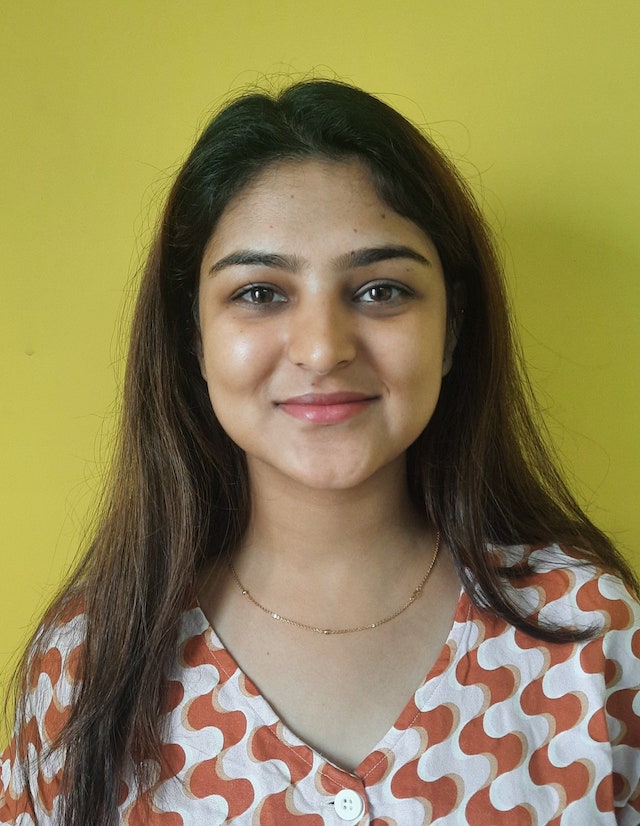
She is an accomplished new-age professional who has interviewed prominent personalities such as Bhaichung Bhutia, G. Sathiyan, Shashi Tharoor, etc. A content writer interested in health communication, graphic desi...View More
Expert Doctors (10)
NABH Accredited Hospitals (5)
Latest Health Articles





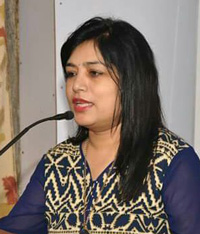
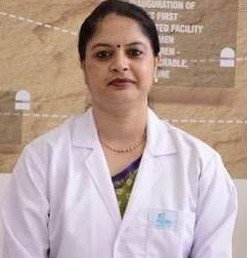
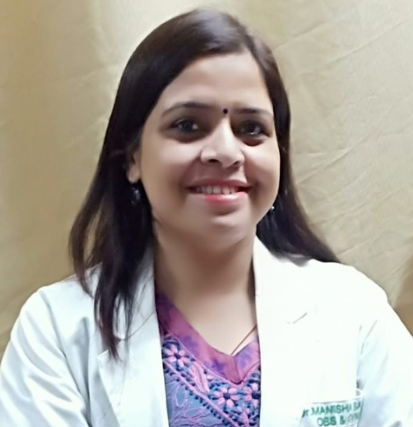
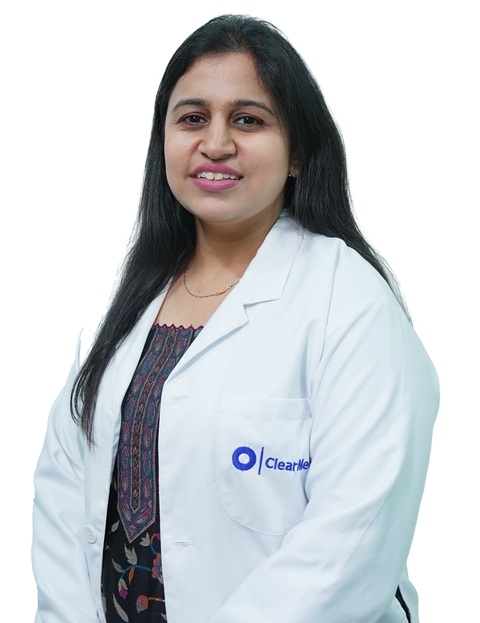

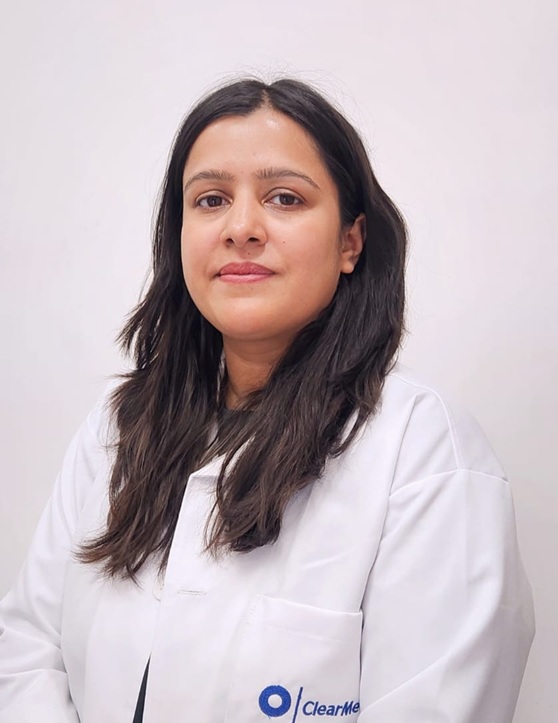













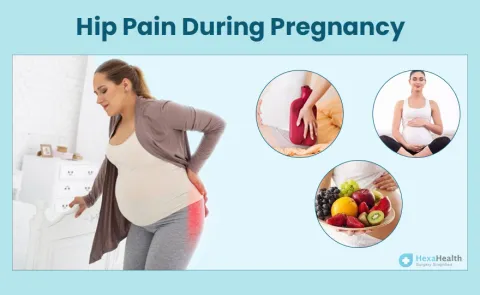


 Open In App
Open In App